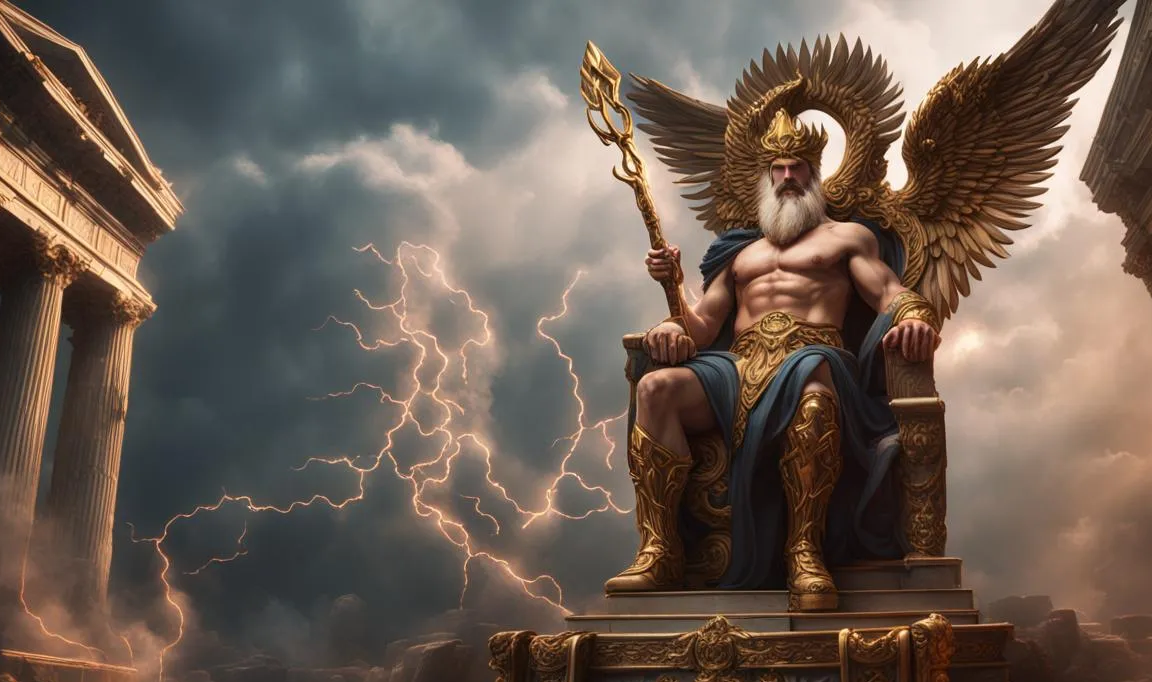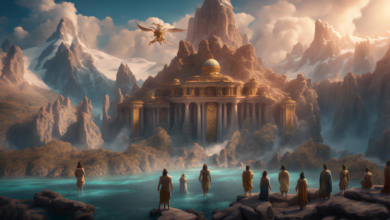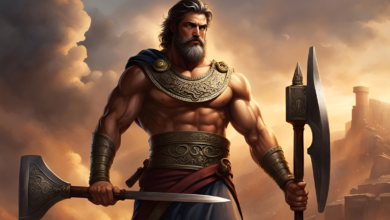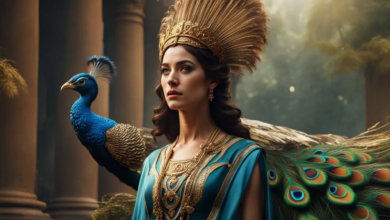Zeus, the king of the gods in ancient Greek mythology, stands as one of the most significant and complex deities in the Greek pantheon. Revered across the Hellenic world, Zeus was the god of the sky, thunder, and lightning, and he ruled over both gods and mortals from his seat atop Mount Olympus. His dominion over the sky and weather allowed him to wield the thunderbolt, his most powerful weapon, making him not only a formidable force in the cosmos but also a symbol of justice and order.
The mythology surrounding Zeus is vast and varied, reflecting his importance in Greek religion and culture. Born to the Titans Cronus and Rhea, Zeus was the youngest of his siblings. Cronus, fearing that he would be overthrown by one of his children just as he had overthrown his own father, swallowed each of his offspring as they were born. Rhea, desperate to save her youngest, hid Zeus at birth and tricked Cronus by giving him a stone wrapped in swaddling clothes to swallow instead. Zeus was raised in secret, and when he came of age, he led a rebellion against Cronus and the Titans, ultimately defeating them and freeing his siblings from his father’s stomach. This victory established Zeus and his siblings as the new pantheon of gods, with Zeus assuming his role as their leader.
Zeus’s rule over Olympus was marked by his wisdom and his ability to mediate disputes among the gods. However, his reign was not without its challenges. Zeus’s numerous love affairs with goddesses, mortals, and nymphs are legendary, leading to the birth of many other gods and heroes, including Athena, Apollo, Artemis, Hermes, Persephone, Dionysus, Heracles, Helen of Troy, and Minos, among others. These relationships often sparked jealousy and conflict, particularly with his sister and wife, Hera, the queen of the gods, who frequently sought revenge against Zeus’s paramours and their offspring.
Despite these tumultuous relationships, Zeus was also a protector of the home and the state, overseeing the laws of hospitality and the sanctity of oaths. The ancient Greeks believed that Zeus watched over all guest-host relationships, punishing those who violated them, and upheld the social order by enforcing justice and righteousness. His role as a father figure extended beyond his immediate divine family to encompass all of mortal and divine creation.
Zeus’s worship was widespread throughout the Greek world, with numerous temples and festivals dedicated to his honour. The most famous of these was the Olympic Games, held every four years in Olympia, which celebrated the ideals of physical prowess and sportsmanship in Zeus’s name. The massive statue of Zeus at Olympia considered one of the Seven Wonders of the Ancient World, exemplified the awe and reverence in which he was held.
The figure of Zeus also loomed large in Greek literature and philosophy. In Homer’s “Iliad” and “Odyssey,” Zeus is portrayed as the arbiter of fate and the overseer of the cosmos, whose decisions impact the lives of gods and mortals alike. In Hesiod’s “Theogony,” the story of Zeus’s birth and rise to power serves as a cosmological myth, explaining the origins of the world and the hierarchy of the gods.
In conclusion, Zeus embodies the complexities and contradictions of the divine, wielding immense power while navigating the intricacies of personal relationships and the maintenance of cosmic order. His legacy, encapsulating themes of authority, justice, and the human condition, has endured through the ages, making him a central figure in the study of Greek mythology and the ancient world. Through Zeus, the ancient Greeks expressed their understanding of the universe, the nature of divine authority, and the moral and social codes that bound their society together.





